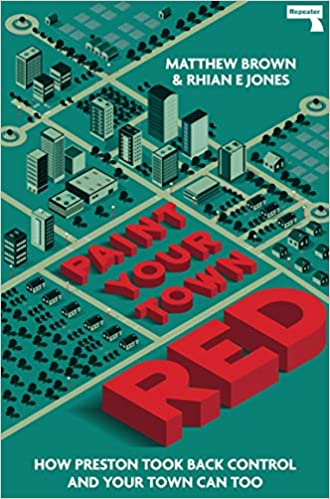Paint Your Town Red: How Preston Took Back Control and Your Town Can Too, Matthew Brown and Rhian E Jones (Repeater, £10.99)
Co-op News readers will hopefully be familiar with the community wealth building model put in place by Preston Council in a bid to create a viable local economy and shield the area from the austerity measures that followed the 2008 crash.
Now, from council leader Matthew Brown, writing with Red Pepper editor Rhian E Jones, comes this introduction to the project, which champions the targeting of spending from the local authority and other anchor institutions to stimulate the local economy. By favouring local co-ops and other SMEs they hope to prevent wealth from being extracted from the area by big outsourcers.

It’s a readable and efficient survey, taking in the electoral upheavals and global challenges of the 21st century, the history of the new municipalism – rooted in the work of Spain’s Mondragon worker’s co-op federation – and examples of how the project can drive provision to meet different needs.
While the Co-operative Councils Innovation Network – a group of UK councils of which Preston is a member – is a non-partisan organisation, Brown and Jones put it in the context of the left, from as the title onwards. “The principles and strategy underlying community wealth-building find a natural home within political projects built around participatory democratic socialism,” they say.
But the idea is an adaptable one. “The umbrella idea of community wealth-building consolidates a set of principles which can drive adaptable strategies in different places,” they stress. “What we are seeing is not spectacular top-down initiatives, or the failed models of professionalised regeneration, but rather a wide network of diverse initiatives that fit the needs and resources of various communities.”
They also put the movement in the context of rising demand for local autonomy; it is “solving problems from below without permission from above”, they argue. Many of those solutions are part and parcel of the co-op movement: credit unions, worker co-ops, community land trusts, asset transfers, community energy and state-backed development bodies like the Wales Co-operative Centre.
And for those inspired to join the fight, it closes with a brief guide to local government – and advice on how to get yourself elected.